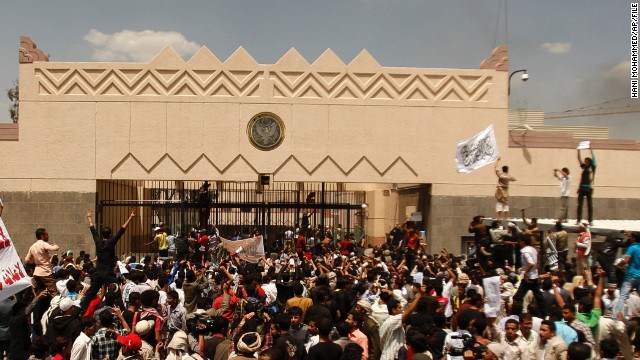The American Empire Is Impotent and Failed
First of all, the West’s illusions of the possibility of U.S. leadership evening the odds in Syria have gradually fallen away since the battle of Qusayr. The essence of what Western experts continually reiterated, regarding the impossibility of bringing about this end without an Atlantic military invasion into Syria, confirms its inevitable defeat. It has widely reached the point in all planning centers where an Atlantic invasion of Syria would be suicide for America and destructive to the West, as well as threaten the existence of Israel in the region as a result of the strength of the Syrian defense system. Their defense system is continuing what has been a sound recovery over the last two years, having increased its array of weaponry and overall capabilities through the formation of a ready Syrian people’s resistance to defend the country.
Another matter compounding the danger is the presence of Hezbollah on Syrian land, extending from Rosh HaNikra to Syria’s borders with Jordan, where it has become a battlefront against the Zionist enemy in any future imperialist war against Syria. In this aspect, it is up to Western planners to calculate the logistical implications, geographically and strategically, of the open front between Syria and Iran, as well as what can feasibly be defended from militant groups. They must also take into account the Russian position and the possibility that the Russian fleet present on the coast will defend against Atlantic attacks on Syria. Indeed, the realistic calculation of these elements makes the military invasion a staunch impossibility and a fatal venture on the edge of a failing global war, as Henry Kissinger described it two years ago.
Second of all, the strategic components of America’s Atlantic scenario completely strike this option out if we take into account the United States’ defeats in the wars in Afghanistan and Iraq, and the failed war it fought with Israel against Lebanon and the Gaza Strip. If we take into our calculations the fact that wars are inseparable from the macroeconomic data for the nations that are willing to start wars, we see that the United States and the industrial nations of the West remain steeped in crises, which have entered a period of cooling, in dealing with their economic recession and unstable financial crises.
This is what set the background of Barack Obama’s speech regarding General Dempsey's testimony after the failure of a special plan to arm and incite terrorist gangs, which was sponsored by the West. Atonement in Syria paints a hopeless picture which Western experts agree on, in the following words: “The scale is tipped in favor of President Bashar al-Assad, and we need to get used to the fact that he will remain in power in the coming years.”* They have vocally hesitated in London, Washington and Paris, and they are trembling with stress in Istanbul and Riyadh.
Third, the Egyptian revolution represents a far more difficult strategic test for the sick American man, whose plans and gambles have collapsed in the region along with the Muslim Brotherhood. This is a terminal collapse, which will have large ramifications in all nations of the region. Not only in Tunisia, Lebanon and Yemen, but Turkey as well, whose troubles preceded the uprising on June 30.
This greater problem, which embodies the deficiency and failure encompassing American policy, demonstrates that the American Empire possesses the power of an old man. A dynamic revolutionary high for the Egyptian people unleashed a resistance against American policies and American stewardship, most importantly its titles and logos. Meanwhile, the greedy Egyptian military leadership overcame the cohesion of the people’s movement’s growing inclination toward liberation from American stewardship and began developing toward a national liberal path.
Western planners expressed their concern over the crystallization of a new Nasserism in Egypt that was depriving the Israelis of sleep. Especially Israelis are giving a historical legitimacy to the Zionist entity by continuing to wail and lament the end of the era of the Muslim Brotherhood, which they had gambled upon to consolidate their hegemony and to filter the issue of Palestine. Indeed, most of the incidents reinforce the West and Israel’s fears of a new Egyptian direction leaning toward an alliance with Russia, Iran and China, as well as the results of the turmoil within Hamas after the defeat of its political office, which has lost its weight in the region since the regional changes and the Egyptian gift.
Finally, the path of rolling change in Egypt opens new prospects as it meets with the path of the coming Syrian victory, as admitted by the American planning centers that draw continual comparisons between the coherent national state and popular support. The dissolute and emaciated fronts of the collaborators have had their names and locations changed within the last two years, from Istanbul and Doha, then Cairo, and recently to Riyadh.
The American and Western comparisons between the rival factions and the Arab Syrian army that is making advances in restoring control on the ground are leading toward an inevitable result. That result is the victory of the Syrian state and Syrian people in resisting aggression and its implements. In the chaos of the Arab East, in politics and in the square, it appears to be the end of the American era and its greater constituents. We are not far from the coming date of a liberal renaissance, in front of which the last American bastion in Saudi Arabia will not last. The cloak of hegemony over the East has become dilapidated and the attempts to patch the collaborators’ drape of faults, with all their files and nomenclatures, will not work.
*Editor's note: The original quotation, accurately translated, could not be verified.

